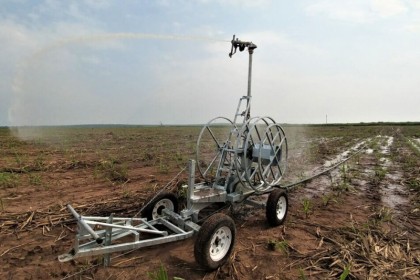
Cultivating Success: How BPO Partnerships Can Boost Efficiency And Protect Profitability In Farming
Like all industries in South Africa, the Agri-sector is feeling the pressure of rising overhead costs. Coupled with the increase in the national minimum wage, a tightening in labour law regulations, and the operational uncertainty created by incessant load shedding, farmers are taking strain. Faced with the decision to increase their prices to consumers, which could negatively impact their competitiveness and result in a loss of market share, agricultural businesses need to find another way to protect profitability without compromising on quality or regulatory compliance. The solution in such a perplexing situation? Business Process Outsourcing (BPO). BPO involves bringing in a third-party productivity specialist to increase agricultural process efficiencies and outputs in such a way as to offset rising input costs, to avoid the need for a downstream price hike.
The growing risks of farming
The agricultural sector in South Africa is fraught with challenges. Higher wage costs and stricter labour regulations have increased the cost of production for farmers which will severely impact profitability. This could make it difficult for farmers to stay in business, especially if they are already facing other challenges, such as pests, disease, or other climate-related risks. When farmers cannot afford to hire sufficient labour, this results in output decreases, which in turn leads to shortages of agricultural products and higher prices for consumers. This affects the competitiveness of local farmers, particularly where the cost of production is lower in other farming countries which makes it difficult for South African farmers to export their products, ultimately leading to job losses in the agricultural sector.
Addressing risks through outsourced efficiency
To mitigate these risks, farmers need to find ways to increase productivity and decrease their costs. The most effective way to do this is to partner with a BPO provider with a solid reputation and performance-driven solution that is geared towards increasing operational efficiencies and effectiveness. By assuming responsibility for specific non-core business processes - such as sorting, cleaning, and packaging processes, such a provider will perform their due diligence, leveraging specialist skills such as industrial or process engineers to optimise operations. Additionally, BPO providers have expertise in a wide range of packaging, sorting, and cleaning processes to help farmers to identify areas where their processes can be improved and to implement cost-saving measures. BPO providers also operate on a large scale, which means that smaller farmers can benefit from economies of scale at a fraction of the cost.
Outsourcing for greater flexibility and fewer worries
The right BPO provider will be able to supply the skilled labour component necessary to achieve optimal operations and meet productivity targets. Most importantly, in terms of human resources and productivity, a BPO solution can give farmers the flexibility they need to scale up and down with seasonal work demands while ensuring accurate capacity utilisation. Businesses using a BPO solution will see an increase in output within shorter time frames because BPO providers have made it their core business to increase productivity while operating within the legislative constraints of compliance specified for the industry. By outsourcing to an ISO-accredited BPO provider, agriculture businesses can hand over all aspects of risk and compliance management to their chosen partner - from labour law and HR/IR compliance to the health and safety compliance of their operations. In other words, farmers can be assured that with the right BPO provider on board, they no longer have to worry about surprise inspections from either the Department of Health or the Department of Labour.
Farming for greater profitability
Fundamentally, the BPO provider’s focus is to drive efficiency and effectiveness for farming businesses through a structured operational solution that hinges on an incentivised remuneration model. This motivates all workers toward fulfilling targets, because the higher their output, the higher their earnings. With this model, farmers no longer have to source and manage their labour and will benefit from converting the fixed cost of managing their workforce into a variable cost (either invoiced per unit of time, or by weight, as agreed) that is tailored to their operations and linked to output. By outsourcing their non-essential business processes, as well as the management and risk mitigation of every aspect associated with these processes, farmers can return their focus to their core competencies - giving their full attention to the growing and harvesting of their crops - which in turn contributes to a more efficient and profitable operation.












